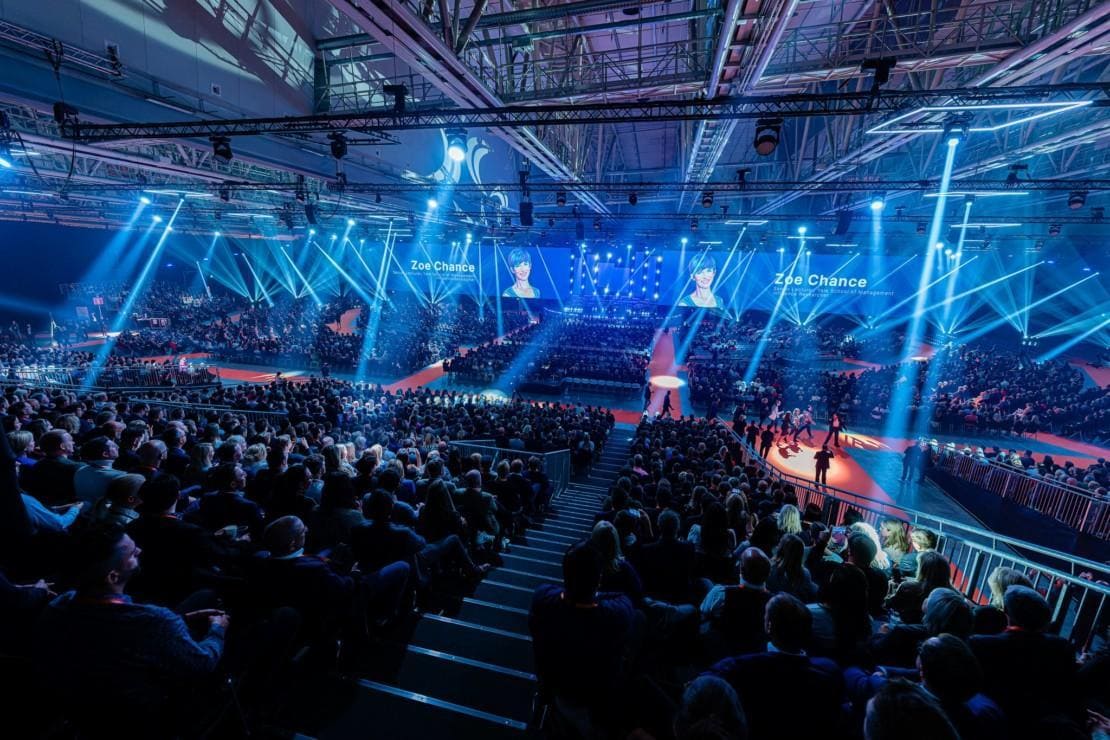1Nov2022
CEOs remaining moderately optimistic about company outlook
The Fortune/Deloitte CEO Survey series tracks the perspectives and actions of CEOs from the world’s largest and most influential companies. The survey gives key insights into CEOs’ priorities, challenges, and expectations across more than 15 industries, including technology, finance, and health care.
In the latest survey, inflation and labor/skills shortage again topped the list of external issues that CEOs expect to influence or disrupt their business strategy within the next 12 months. The majority of CEOs (62%) anticipate increases in inflation-adjusted wages, and the majority (71%) believe the overall talent shortage will continue.
To increase employee engagement, most organizations (87%) are allowing more flexibility and predictability in hours and location for work. However, half of CEOs (54%) believe hybrid workplace models lead to lower employee engagement and loyalty.
Over the next 12 months, almost all CEOs (91%) anticipate investing in AI, indicating that it has the potential to differentiate their organization by accelerating insights, improving decision-making, and increasing speed to execution.
All in all, CEOs continue to adapt to a dynamic environment, including rising inflation, global conflicts, and geopolitical instability and polarization. The ongoing war for talent remains top of mind for CEOs working to identify new ways to engage and attract employees. Despite consistent headwinds, CEOs remain positive about their company’s growth and expect inflation to decrease by year-end.
Job engagement declines for a third of workers; remote work is not to blame
The latest workforce survey from The Conference Board – that polled more than 1,600 individuals, predominantly office workers – reveals that nearly a third of workers report decreased commitment and connection that they feel to their work. Work location—whether on-site, remote, or a hybrid blend of the two—has no impact on self-reported engagement levels.
Women, Millennials, and individual contributors report lower engagement than men, older generations, and executives. But even with lower levels of self-reported engagement, 82 percent say their level of effort is the same or higher.
The survey also finds that more workers want to quit, but few have plans to actually do so. Workers’ intent to stay at their jobs decreased for 37 percent in the last six months, but only 12 percent are actively planning to leave. Indeed, the imminent recession has 29 percent of workers thinking twice about quitting.
“While these results show that a likely recession may slow some of the high turnover we’ve been seeing, engagement is eroding for many of those who remain,” said Rebecca Ray, PhD, Executive Vice President of Human Capital at The Conference Board. “For businesses to truly thrive, they should focus on improving employee engagement, no matter the employee’s work location or schedule. Especially during challenging times, previous research from The Conference Board has shown that it is important for leaders to reconnect all workers to the mission and purpose of the organization, as well as to lead with compassion. For workers who are remote or hybrid, this may mean being more intentional about making time for connection.”
Consumers to spend USD 27Bn on Virtual and Augmented Reality next year – 25% more than in 2022
In just a few years, augmented reality (AR) and virtual reality (VR) became one of the hottest tech trends, with millions of users worldwide. From social interactions in VR games and photo editing to the enhanced and personalized shopping experience, AR and VR apps have found their use across different markets.
According to data presented by Trading Platforms, global consumer spending on augmented and virtual reality is expected to hit almost USD 27Bn next year, 25% more than in 2022.
Virtual reality has been on the verge of becoming mainstream for years. But, after some of the biggest tech players, like Meta, joined the VR game, the industry is getting closer and closer to that moment. In 2022, consumers worldwide are forecast to spend close to USD 10Bn on VR hardware and software, according to a Statista survey. With the entire market thriving, user spending will jump by 27% to USD12.7Bn next year. Statista expects VR hardware revenues to hit USD 9.39Bn in 2023, showing a 23% YoY growth. VR software spending is set to jump by 40% to $3.3bn.
The AR market has gone far from Snapchat filters, and Pokemon Go, the most popular examples of this technology, and revenue figures confirm that. Consumer spending on AR software and hardware will hit USD 11.5Bn in 2022 and jump by another 20% to almost USD 14Bn next year.
Besides surging revenues, the entire industry will also witness impressive user growth. Statista expects the whole market to reach over 2.2 billion people next year, or 200 million more than in 2022.
Integration of Artificial Intelligence with liquidity asset liability management platforms to shape future growth
According to the Liquidity and Asset Liability Management Solutions Global Market Report 2022, continuous advancements in technology and the rise in demand for automation are positively impacting the global liquidity and asset liability management solutions market. In fact, the market size is projected to grow at a CAGR of 9.1% – from USD 1,787.59 million in 2022 to USD 3,009.24 million by 2028.
Integrating artificial intelligence (AI) technology and analytics in the financial sector permits organizations to profoundly understand the complexities involved in the global markets, which helps them make more precise investments. AI is being integrated extensively across numerous areas, from cloud computing applications to digital assistants, to automate the process.
Integrating AI and analytics with liquidity asset liability management solutions allows companies to analyze all details related to their investments, both past and future. In addition, it offers real-time analytics and intelligence and helps reduce the operation cost. The continuous advancements in AI also permit wealth managers to determine new sources of investment and customize investor portfolios associated with specific risk profiles. The adoption of modern liquidity asset liability management solutions is driven by their ability to increase operational efficiencies, offer better sales revenues, and improve customer experiences.
On Thursday November 3rd at 16:30 (UTC+2), Josh Bersin hosts a webinar to help find the path toward successful employee engagement.
Register for free to join us live or to get the recording!


